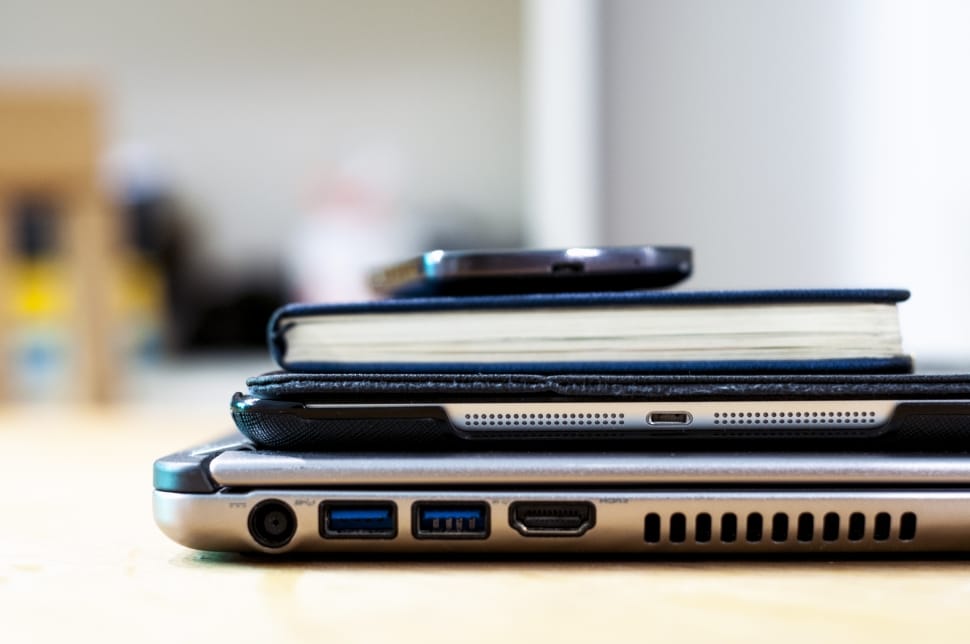Ask Bryan
Five tech questions – answered
As technology becomes more complicated, Gadget’s Bryan Turner answers five reader questions to demystify advanced tech for non-techies.
Technology becomes both easier and more complicated as it advances. Our readers understand the easy bits and some have asked us the more complicated questions, which Gadget’s Bryan Turner has demystified for non-techies.
Q: My computer is getting slower and slower. What can I do to repair it?
A: A computer usually becomes slower when a hard drive starts to fail. This is especially true for laptops that are moved around a lot. Solid-state drives are becoming increasingly affordable, are much faster at accessing data, and have no moving parts inside them to get damaged in transport.
My recommendation is to back the computer up, make a Windows restore USB with Microsoft’s Installation Media Tool (one should always have one of these handy for recovery), purchase a solid-state drive, and follow a tutorial on YouTube for replacing a hard drive on your computer’s model. In most cases, it’s not more than 4 screws to replace. Since the drive will be empty, one will need to reinstall Windows from the USB installer that was created.
The other factor in a slowing computer is a full hard drive. The less available space, the less capable the computer is of allocating resources for even the most basic processes. Delete unused applications, and find the largest files you have stored – usually videos and images – and move them to external drives.
Q: I’ve seen a friend’s social media account got hacked. How do I prevent it from happening to me?
A: Platforms like Facebook, Twitter, Instagram, and WhatsApp can easily get hacked via different methods (predominantly phishing). You can strengthen your account with the following methods:
Use different passwords for each account. That way, if one of them suffers a password breach, the other accounts won’t be compromised. Use a password manager like LastPass or write them in a notebook to record the passwords.
Enable two-factor authentication on all accounts. This is a one-time PIN that one can enable in settings. An app like Google Authenticator will store these OTPs, which change every 30 seconds, and will generate new ones without needing an Internet connection.
Enable two-step verification in WhatsApp, which will allow you to set a permanent PIN and will protect you from account compromises from a SIM swap scam or other methods.
Q: My Wi-Fi doesn’t cover my whole house. How can I extend the range?
A: There are four factors that affect Wi-Fi coverage: floor space, thick walls, multi-storey buildings, and the number of other Wi-Fi networks around the router.
Not all extenders are the same. Traditional extenders only output 50% of the speed they receive, so it’s worth looking into other methods like mesh networking or power line connectivity (PLC).
Most of these issues can be remedied with mesh routers like the Huawei Wi-Fi Mesh and TP-Link Deco routers. Many of these also have PLC options, which use a house’s powerlines as connection lines.
For flats with several Wi-Fi networks, search how to change your router’s operating channel.
Q: I’m concerned about being tracked around the Internet. Does a VPN help?
A: In the age of web tracking and region content blocking, a VPN can help mitigate tracking.
Most VPNs have a smartphone or desktop app, which offers quick connectivity via a different location. In other words, your web traffic will go to another location (like London) and make the sites you visit think you’re visiting from the UK. This can help mask your location around the web.
Picking the right VPN is essential because not all VPNs are made the same. Recently, the VPN industry has become rife with snake-oil salespeople that offer “no tracking” but will freely hand over access logs (web history) to advertisers to make more money. What’s worse are the VPN “review sites” which are paid for by the VPN companies that always seem to come out on top.
We recommend one’s foray into VPNs by using Windscribe, which offers 10GB of free traffic before needing to upgrade to a paid plan. It has a track record of not handing over logs to third parties and has a strong focus on privacy.
Q: I need a new charger cable for my car. Why doesn’t the generic charge as fast as the cable that came with my phone?
A: Not all cables are the same. When it comes to the newer smartphones, there are often proprietary chips within charging cables for safe fast charging.
We’ve experienced this recently as well: a USB cable for a smartphone (which charges with 15W fast charging) is not enough to power up a MacBook Air (which requires 30W to charge up).
Our advice is to purchase a cable directly from your smartphone’s brand. Most brands also tend to have 12V car charger adapters to ensure optimal performance from both the power supply and the cable.
Some car infotainment systems also require the cable that was made for that smartphone, so official cables are strongly recommended.














